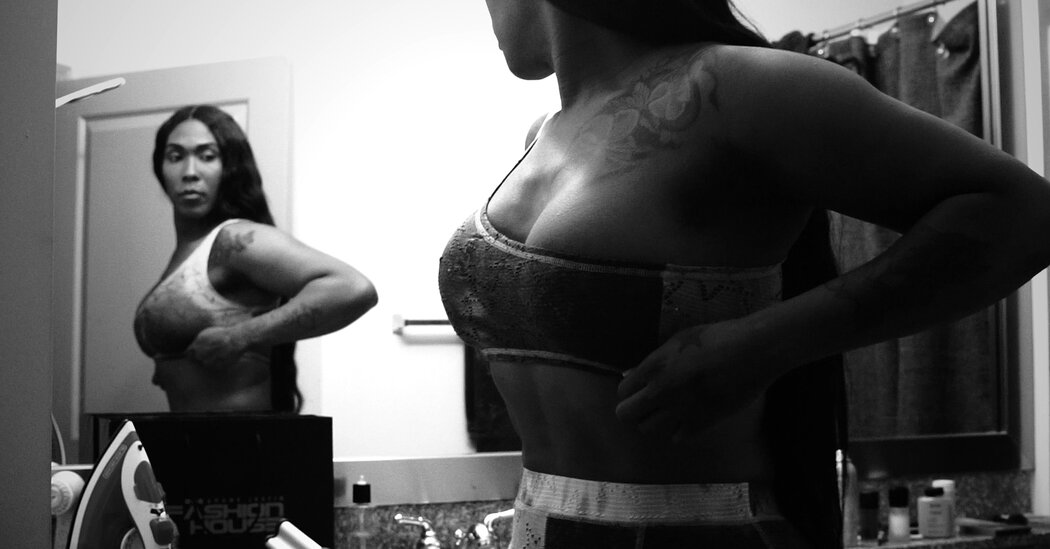
The documentary “Kokomo City” features interviews with people who aren’t often given the chance to publicly share their life stories. The film follows four Black transgender women, who speak directly to the camera about how they got into sex work and what they learned about human nature once they got there.
The film’s vivacious interviews take place in personal, bare settings, as the film’s subjects put on makeup and get dressed. One by one, the interviewees — Daniella Carter, Koko Da Doll, Liyah Mitchell and Dominique Silver — share candid stories of how they sustain themselves in a profession whose clients can quickly turn toward violence.
In a tragic reminder of the film’s life-or-death stakes, one of the documentary subjects, Koko Da Doll, was fatally shot in April, just months after the film’s premiere at the Sundance Film Festival. But here, Koko brims with vitality, ambition and insight. This is not a maudlin film; instead it is a movie with heroines who fight tooth and nail for their lives and their self-worth.
The director D. Smith, who is also transgender, shoots her subjects in black and white. She uses music to emphasize episodes of their stories, with comic record scratches and jaunty melodies underlying their madcap recollections. Smith also utilizes actors for re-enactments — unnamed performers roll down car windows and peel off waistbands as the film’s subjects describe their work in voice-over.
Smith’s style doesn’t break new ground in documentary filmmaking. At times, her movie feels diminished by comparison to landmarks from queer documentary history, films like “Portrait of Jason” (1967) and “Paris is Burning” (1990), both of which used surreal images, experimental editing and offscreen sound to complicate the relationship between performance and reality. By comparison, Smith’s style is more slickly commercial, at the cost of artistic power, with a run time that feels too short for the amount of insight its subjects offer. What feels fresh, though, is the palpable trust between the person asking the questions and the people answering them. Smith’s approach grants respect to women who are often dehumanized, even in their most intimate settings.
Each woman proves herself to be a marvelous investigator, a theoretician of human sexuality with a lifetime of evidence to report. Their stories range from reflections on clients who prefer to remain unseen to memories of near murder to the economic benefits of gender-affirming surgery. But most important, Daniella, Koko, Liyah and Dominique provide a record of their own extraordinary lives, one that resonates with clarity and compassion.
Kokomo City
Rated R for nudity, sexual content, language and references to violence. Running time: 1 hour 13 minutes. In theaters.













